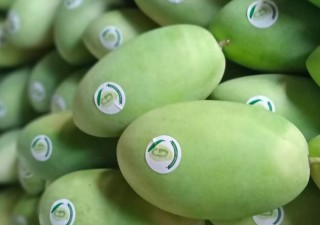JPO Will Strengthen Cooperative Relationship with ASEAN in the Field of IP
15 August 2014

The Japan Patent Office (JPO) and the Intellectual Property Offices of the Member States of the Association of Southeast Asian Nations (ASEAN) held the fourth JAPAN-ASEAN Heads of Intellectual Property Offices Meeting in Ho Chi Minh City, on July 2, 2014. At the meeting, JPO and the ASEAN IP offices formulated the cooperation programme on IP issues for fiscal year 2014. Also, JPO and the IP offices confirmed that, based on the extensive knowledge and experiences compiled at JPO for years, JPO will continue its support to the ASEAN IP offices also for 2015 and beyond, on such activities as building human resource development and IP office management schemes suitable for each country, and enhancing information systems infrastructure.
Key enhancements that JPO would offer the AESEAN IP offices for 2014 and beyond include:
(i) Supporting the IP offices in building their own human resource development schemes, so that they can efficiently and continuously develop IP office officials. However, “since ASEAN is a region with 10 countries under unique conditions, providing a support for capacity-building and improving the IP environments uniformly within the region might be a challenge,” says Kan Otani, a patent attorney at Ohno & Partners in Tokyo;
(ii) Supporting capacity-building of examination practices in the fields of design and trademark through activities such as coaching to examiners by JPO examiners and sending JPO examiners as instructors to examination practice training programmes in the ASEAN region. “JPO has been sending its examiners to ASEAN countries like Vietnam for examiner coaching and examination practice training programmes for years, and this capacity-building support is now expanded to designs and trademarks. As we are now in the post-TRIPS era, basic IP laws are harmonized but the regulations and examination guidelines under such laws are still unstable in the ASEAN region probably due to relatively small amount of substantive examination experience,” Otani says. “Examination practice training programmes include lectures for countries where substantive examination is outsourced or limited. Additionally, JPO is accepting IP and customs officials from the ASEAN countries for training at JPO - but mainly on patents so far;”
Based on a JPO internal magazine, during 1996-2012, the number of trainees accepted from abroad and the number of officials sent from JPO are as follows:
(Country) (Trainees from Abroad) (Officials from JPO)
Burunei 4 0
Cambodia 66 7
China 710 35
India 205 14
Indonesia 561 96
Laos 63 10
Malaysia 372 38
Myanmar 36 0
Phillipines 402 46
Singapore 3 0
Thailand 489 90
Vietnam 453 83
Others 623 95
Total 3987 514
“These numbers are huge when the fact that the numbers of IP officials in the ASEAN countries are relative small,” adds Otani.
(iii) Holding seminars with governments and private sectors for companies to raise IP awareness;
(iv) Strengthening the IT system infrastructure at each of the IP offices to enhance efficiency in examinations and other work operations by means including utilization of the WIPO-CASE system. The WIPO-CASE is a centralized access system which enables patent offices to securely share information on patent applications and examinations. “JPO is going to assess the level of IT infrastructure in each country and provide the necessary system development support,” says Otani;
While JPO is exporting its significant resources to ASEAN, some might be concerned about the impact on its own operations but Otani says that such worry is unwarranted.
“The numbers of JPO patent, design, and trademark examiners are about 1700, 50, and 150, respectively. For example, for patents, JPO currently issues its first office action within 11 months from the request of substantive examination and it is one of the most efficient IP offices in the globe,” says Otani. “JPO will be able to still examine efficiently back home and meanwhile contribute to the development of the ASEAN IP offices.”





